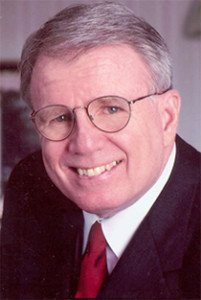Greg interviews Bill Denihan, CEO of ADAMHS, Cuyahoga County. The Alcohol, Drug Addiction, and Mental Health Services Board of Cuyahoga County serves residents who need help in these areas. Bill talks to Greg about the process of detox and what must happen afterward to ensure a successful recovery.
Bill talks about the high demand for detox services. This situation leads to some clients being turned away, even when they need detox treatment. “All too often, our providers [have to] say, ‘we can’t do it today. Why don’t you come back in a few weeks?’”
“Getting a person into detox is critical,” Bill says. “After we get them into detox, they need long-term sober bed treatment.” Bill discusses how in the past, the practice as to provide 30 days of treatment, then send the person home—right back to the location where they became addicted. “Addicts need long-term sober beds,” he says, “between 9 and 18 months. It’s not just 30 days or 60 days. It’s a long time, when they learn a lifestyle and learn to have the confidence that they can live without that addiction on a day-to-day basis.”
Bill mentions two types of treatment which he has seen work well, alone or in combination:
- Medically assisted treatment
- 12-step sobriety programs
Bill talks about families who come to ADAMHS to ask about a loved one who they think may be an addict. “We have grandparents and moms and dads coming to us on a daily basis,” he says. “They ask, ‘What should I do? My grandson doesn’t work. He’s 28 years old, and he’s living in the basement. He sleeps all day. He’s gone somewhere at night. What should I do?’ Well, it’s hard to say to them, you gotta find some tough love… but the longer they support him by providing a roof over his head, the longer he’ll be out there using.” The safety net must adapt to that, Bill says. This is what ADAMHS is all about.
Greg asks Bill what families should do when a loved one reveals his or her opioid addiction. How can parents avoid getting exploited when trying to choose a treatment program for their loved one? “That’s a really hard question to answer,” Bill says. “There are very few treatment programs that don’t work. When they don’t work, in my viewpoint, it’s as much the person going through treatment as it is the treatment. A person has to want the treatment to be successful.”

ABOUT
William Denihan has served as the CEO of the Alcohol, Drug Addiction, and Mental Health Services Board of Cuyahoga County since 2002. Previously, he served as the Executive Director of the Cuyahoga County Department of Children & Family Services, as well as the Safety Director for the City of Cleveland. He holds a BA in Public Administration from Cleveland State University. Mr. Denihan is an important player in the fight against opioid abuse in Ohio.




Leave A Comment